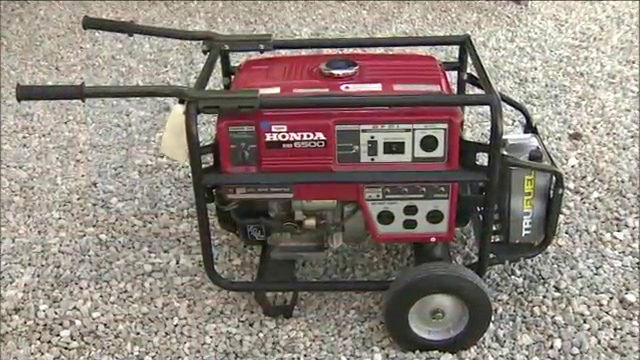After a hurricane, many people turn on their generators when the power goes off. But if not used properly, a generator can lead to deadly carbon monoxide poisoning.
A family was poisoned after breathing in toxic carbon monoxide coming from their generator.
Robert Aratari, Gencat creator: “There was a family in my neighborhood that perished from using a generator. I saw bodies coming out in yellow blankets, and it horrified me because I knew the children, 13 and 14, and I knew the mom and dad.”
Miami Beach Fire Captain Charlton Price: “It will give symptoms of illness. Signs of headache, dizziness, nausea and even vomiting.”
City of Miami Assistant Fire Chief Pete Gomez: “It asphyxiates you. It prevents your body from absorbing oxygen, so it kills you that way.”
Carbon monoxide is called the “silent killer.”
Marcos Osorio, Key Biscayne Fire: “It’s odorless. Can’t taste it, you can’t smell it. You don’t even know it’s there until you have the severe effects of it.”
Charlton Price: “Carbon monoxide definitely can kill.”
Pete Gomez: “Many times, when people die, they never even knew they were being exposed to it.”
Local firefighters helped us create three different scenarios to show how quick carbon monoxide can affect someone.
Raphael Pozo, Miami-Dade Fire Rescue Hazmat: “We set up a generator two feet away from a door. It was lethal inside that room in less than a minute. At a 10 foot distance from that door, and we ran it for five minutes and the environment inside that room was lethal again, immediately after we went into that room.”
At 25 feet, the carbon monoxide levels were down, but for safety officials low levels are still too high.
Raphael Pozo: “Your goal should be to have zero.”
After his neighbors died of carbon moxide poisoning, Robert Aratari vowed to make generators safer.
Robert Aratari: “My product is a bolt on, after market muffler designed for small engines to reduce carbon monoxide by 99 percent.”
His invention is called the Gencat, and it attaches to most generators.
Robert Aratari: “I’ve got a deep passion because I’ve got something in my hands that can actually keep people from dying.”
And while it may make generators safer, rescue workers say you should still be cautious.
Raphael Pozo: “Having a generator is like any other type of tool that can be deadly, a knife, a gun, etc. You need to know what you’re doing with that tool.”
The Fire Officers Association of Miami-Dade recommends carbon monoxide detectors in homes to alert you if levels get too high.
FOR MORE INFORMATION:
http://www.300technologies.com
Copyright 2024 The Associated Press. All rights reserved. This material may not be published, broadcast, rewritten or redistributed.

